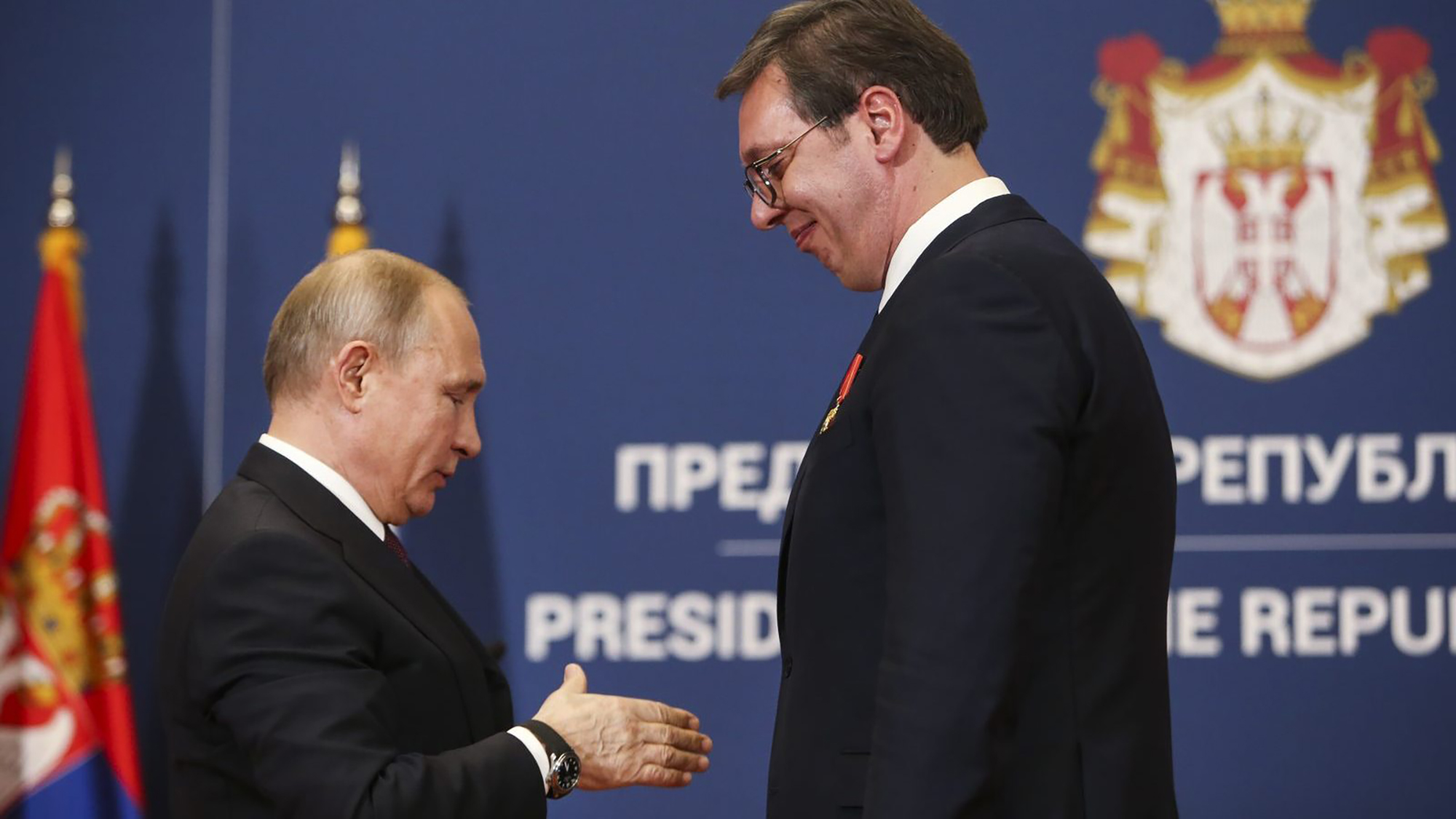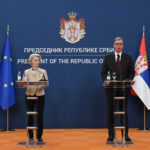When we talk about Russia’s role in the Balkans, we should remember that there are two completely different periods of Russian influence on events in the region and in the former Yugoslavia. Before the breakup of Yugoslavia, Russia in fact had no real influence on internal processes — at least after the conflict between Tito and Stalin. Yugoslavia was then independent in its foreign policy, oriented toward the Non-Aligned Movement, with its own ideology of self-governance. Therefore, the current influence of Moscow is the result of new relations that were formed between the former Yugoslav republics and Russia after the dissolution of the federation.
It can be said that the leaders of the former Yugoslav republics, primarily Serbia and Montenegro, let Russia into the region themselves, expecting it to become an ally of their own ambitions. They hoped that the support of a great power would strengthen their positions in the region and in their relations with the West. Moscow took advantage of this aspiration of the elites in Belgrade and Podgorica to establish itself in the Balkans, to create instability — for this is exactly what the Kremlin calls “influence” — and to turn the Balkans into a new powder keg. Russia uses conflicts among the peoples of the region as an instrument to reinforce its foreign policy presence and confrontation with the West.
The problem is that anyone who perceives Russia as an ally must understand: it sees itself not as a partner, but as a patron. And the territory that seeks relations with it — as a springboard for new offensives. In the Russian concept of foreign relations, allies are merely instruments. We have already seen how Russia tried to turn Serbia into such a springboard, then Montenegro, and even North Macedonia. And we remember how, during the war in Bosnia, Russia effectively used the tragedy of the peoples of that country as a testing ground for its future wars — a laboratory that later became the foundation for the conflicts in Georgia, Ukraine, and Moldova.
At the same time, Russian influence in the former Yugoslavia is largely artificial. There are countries that cannot rid themselves of this influence for geographic reasons — as, for example, Ukraine. And there are those that cannot remove it because of historical ties after the Second World War: the Russian economy, intelligence networks, propaganda — all of this took root decades ago and eradicating it is not easy. But in the case of the former Yugoslavia, things are different. Here, Russia’s influence exists solely as a result of a deliberate choice, not an economic or political necessity.
After the fall of Milošević, Russian influence in Serbia almost disappeared and began to recover only when representatives of the old elites came to power in Belgrade under Aleksandar Vučić. Today, Russian influence has become one of the main propaganda tools in the hands of the current authorities.
The same applies to North Macedonia: during the rule of Nikola Gruevski, Moscow had a foothold, but after his fall its influence virtually disappeared. This demonstrates how dependent this influence is not on deep social processes, but on specific political figures.
In Montenegro, where Milo Đukanović consistently led the country toward European and Euro-Atlantic integration, Russia had no natural levers of influence. Therefore, it acted through conspiracies, coup attempts, support for marginal pro-Russian forces, and the exploitation of ideas about “Serbdom” and the identity of the Montenegrin people. Its strategy is not development, but influence. The conquest not of territories, but of consciousness. Instead of tanks — media, instead of occupation — ideology, instead of diplomacy — sentiment. The rhetoric of “traditional values” and “brotherhood of nations” is nothing but an instrument of power.
The problem of Russian influence lies not in its strength, but in its flexibility. It depends not on the Kremlin, but on local allies who sustain its existence. Each time some Balkan political elite seeks confirmation of its own significance from Moscow, it effectively gives up part of its sovereignty in exchange for symbolic support.
However, the real danger lies not in Moscow, but in the illusion of Moscow. In the belief that national stability can be bought on the geopolitical market. In the hope that a “historical ally” will solve the internal contradictions that we ourselves do not want to resolve. Russia is neither a father nor a protector — it is a mirror in which the weaknesses of the Balkans are reflected more clearly than anywhere else.
The Balkans today again stand at a crossroads, but this time without romantic words and without myths. On one side — Europe, as a system of rules, responsibility, and long-term commitments. On the other — Moscow, as a space of emotions, mythology, and short-term promises. Between these two options stands not geography, but psychology. Some seek the future, others — excuses.
Russia offers the Balkans only one role — to remain the powder keg of Europe, a geopolitical experimental ground between East and West. Europe, on the contrary, offers the only chance — finally to get rid of that keg. And anyone who believes that peace can be built on instability is choosing chaos in advance.
Therefore, it is not Russian influence itself that should be feared. What is terrifying is the peoples’ desire in the former Yugoslavia for this influence. And thus the question is not whether Moscow will remain present, including in the Western Balkans, but how long we will keep the door open for it.
Vitaly Portnikov. Ukrainian journalist, political commentator, author and opinion-maker.

The articles published in the “Opinions” column reflect the personal opinion of the author and may not coincide with the position of the Center



